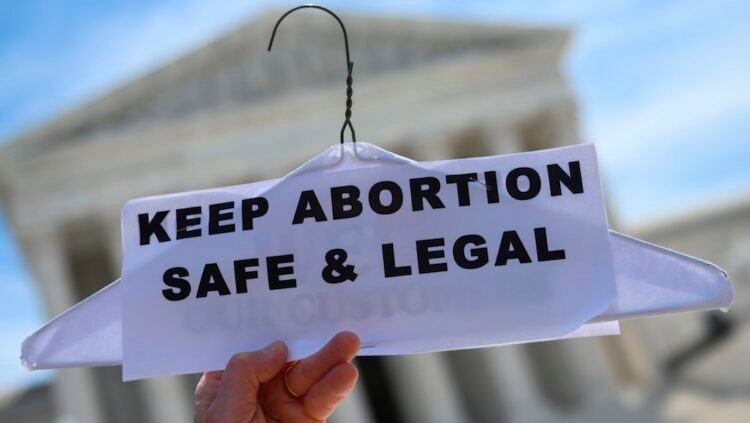The debate surrounding Nigeria’s restrictive abortion law has been ongoing for years, with a focus on its impact on women’s health and rights. While the law is intended to reduce the number of abortions in the country, its impact on maternal mortality and women’s rights is a subject of scrutiny. Jumoke Olasunkanmi – writes.
The law permits abortion only in cases where the life of the mother is at risk, leading to a high prevalence of unsafe abortions and contributing to the country’s alarming maternal mortality rate.
Despite the restrictive abortion law, a report by the Guttmacher Institute that revealed an estimated 1.25 million induced abortions occur in Nigeria each year, a significant proportion of the total number of pregnancies in the country. This raises questions about the effectiveness of the law in achieving its intended purpose of reducing abortion rates.
One of the leading factors contributing to the high rate of abortion in Nigeria is the stringent social penalties and punishment for women seeking abortion. The law stipulates imprisonment for women seeking an abortion, pushing them to resort to unsafe methods, which further contributes to the country’s already high maternal mortality rate.
Abortion is the second leading cause of maternal deaths in Nigeria, responsible for 40 per cent of the mortality rate. According to data from Nigeria’s Ministry of Health, the country accounts for about 512 maternal mortalities per 100,000 births – one of the worst in the world.
Interestingly, Nigeria’s maternal mortality rate from unsafe abortions is higher than in countries where abortion is legal. The criminalisation of abortion in Nigeria contributes to the high number of unsafe abortions, leading to a significant burden on the healthcare system and contributing to the country’s overall underdeveloped healthcare infrastructure.
Cultural, moral, and religious factors also play a part in reinforcing the abortion ban and contribute to the secrecy surrounding the topic. Major religions in Nigeria, particularly the Catholic Church, strongly oppose abortion. In 2022, the Catholic Church protested the proposed legalisation of abortion by the Lagos State government, emphasising the sanctity of the unborn child.
The policy document titled ‘Lagos State Guidelines on Safe Termination of Pregnancy for Legal Indications’ proposed by the Lagos State government faced opposition from the Catholic Church. The Archbishop of the state, Rev. Alfred Adewale Martins, openly opposed the idea, stating that the church was not consulted on the topic as a stakeholder.
The Catholic Church and other ethically-minded individuals oppose all forms of abortion procedures, emphasizing that every human life, including the unborn child’s, must be respected and protected. The church’s stance on abortion demonstrates the challenges faced in attempting to reform Nigeria’s restrictive abortion laws and the significant influence of religious beliefs on women’s reproductive rights.
Despite this stance, there are a handful of non-governmental organizations and advocacy groups that advocate for the reform of the Nigerian abortion law to promote safe abortion and reduce the maternal mortality rate.
Omolola Pedro, the Director of the Gender Department of the Take It Back movement (TIB), in an interview with the African Health Report (AHR), said Nigeria’s restriction of abortion is an infringement on the rights of women and a circumscription to their body autonomy.
She said: “The position of the Take it Back movement on the criminalization of abortion has always been clear. The law essentially is just one of the fascist manifestations of the Nigerian state in that it dehumanizes women by restricting their bodily autonomy.
“The Nigerian government is aware that the law does not stop abortion, it only pushes women to seek medical help from unprofessional and thereby put their reproductive system and their lives at risk,” she said.
TIB movement is a human rights organization that supports human and civil rights including reproductive health and sexual rights.
Pedro went on to explain that TIB since its inception has advocated for the overhaul of the law as it endangers the lives of women and girls. Stating, “We strongly advocate for the overturning of the provisions of our laws that put abortion out of women’s reach.”
Nigeria’s restrictive abortion law is contributing to the high rates of unsafe abortions and maternal mortality in the country. There is a need for comprehensive reform that addresses the complex socio-economic and cultural factors that perpetuate the high prevalence of unsafe abortions. It is essential to prioritize women’s health and rights in the discourse surrounding abortion laws and to work towards providing women with access to safe and legal abortion services.
Efforts to reform Nigeria’s abortion laws should consider the importance of reproductive rights in improving women’s health and well-being.



